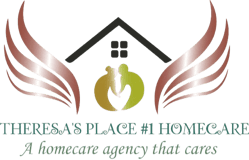You’re about to explore how effective home care can prevent hospital readmissions in Essex County. By focusing on personalized care plans and medication management, you’ll discover how addressing patients’ unique needs can make a difference. Continuous monitoring and social support systems play vital roles too. Imagine improving comfort and independence while reducing complications. Curious about how collaborative efforts among healthcare providers can lead to better outcomes? Let’s uncover these strategies together.
Understanding the Causes of Hospital Readmissions

Exploring the reasons behind hospital readmissions is vital for improving patient outcomes. You need to take into account the root causes such as patient demographics, which include age and underlying chronic conditions. Socioeconomic factors often play a significant role; lack of resources can limit healthcare access and effective discharge planning. It’s imperative to guarantee that your discharge plan addresses these challenges by integrating post-acute care services. Also, emphasize the importance of social support systems, which can help patients adhere to their care plans and prevent complications. By understanding these elements, you can better tailor interventions that reduce readmission risk. Your focus should be on creating a holistic approach that addresses each patient’s unique needs and circumstances, fostering a healthier recovery journey.
The Role of Home Care in Patient Recovery
Addressing the factors that lead to hospital readmissions requires a compassionate, individualized approach, and this is where home care plays a pivotal role in patient recovery. By providing recovery support within your familiar home environment, you can heal more comfortably and effectively. Home care professionals assist with medication management, wound care, and daily activities, reducing the risk of setbacks that could lead to readmission. They also monitor your progress closely, ensuring timely adjustments to your recovery plan.
| Aspect | Benefit |
| Home Environment | Comfort and familiarity |
| Recovery Support | Personalized care and attention |
| Medication Management | Reduces errors and complications |
| Daily Assistance | Enhances independence |
Developing Personalized Care Plans
Crafting a personalized care plan is essential to ensuring your recovery journey is as effective and comfortable as possible. By conducting personalized assessments, healthcare professionals can understand your unique needs and preferences. This process involves discussing your medical history, current health status, and lifestyle. It’s about listening to you and acknowledging your concerns. Once the assessment is complete, customized interventions are designed to address your specific challenges. These interventions might include physical therapy, dietary changes, or regular health check-ins, all aimed at supporting your recovery at home. Remember, you’re not alone in this process; your care team is there to guide you, ensuring that your plan evolves as your needs change, reducing the risk of hospital readmissions in Essex County.
Medication Management and Adherence
When it comes to reducing the risk of hospital readmissions, medication management and adherence play a pivotal role in your recovery at home. By ensuring proper medication reconciliation, you can prevent potentially harmful interactions and side effects. Embracing adherence strategies is essential for maintaining your health and avoiding setbacks. Here’s how you can enhance your approach:
Medication management and adherence are key to preventing hospital readmissions and ensuring a smooth recovery at home.
- Stay Organized: Use pill organizers to keep track of daily doses, ensuring you never miss a medication.
- Set Reminders: Create alarms or use apps to remind you of each dose, making it easier to stick to your schedule.
- Communicate Openly: Talk to your healthcare provider about any concerns or side effects, ensuring they adjust your treatment as needed.
Your health matters, and every step counts.
Continuous Monitoring and Follow-Up Care
You might find that continuous monitoring through remote patient tools offers peace of mind and a safety net against unexpected changes in your health. Regular in-home visits by your care team guarantee that any concerns are addressed promptly, helping you stay on track with your recovery. This combination of technology and personal care creates an all-encompassing support system customized to your needs.
Remote Patient Monitoring Benefits
Remote patient monitoring offers a wealth of benefits that can greatly enhance patient care and prevent hospital readmissions. By using remote monitoring technology, you empower patients to take charge of their health from the comfort of their homes. Imagine the peace of mind that comes from knowing your health is constantly being monitored by caring professionals.
Here’s how it benefits you:
- Prompt Alerts: Swift notifications allow you and your healthcare team to address issues before they become serious.
- Enhanced Engagement: Patient engagement strategies encourage you to be proactive in managing your health, fostering a sense of control and ownership.
- Reduction in Anxiety: Continuous support and follow-up care provide reassurance, knowing you’re not alone in your health journey.
This compassionate approach guarantees you receive the best care possible.
Regular In-Home Visits
Building on the advantages of remote patient monitoring, regular in-home visits play a pivotal role in providing continuous monitoring and follow-up care. When healthcare professionals visit your home, they conduct thorough home assessments to address any potential health concerns. These visits allow for personalized care, ensuring that your specific needs are met with precision. By fostering patient engagement, you’re encouraged to participate actively in your health plan, enhancing your understanding and confidence in managing your condition. Regular interactions with healthcare providers can catch complications early, preventing unnecessary hospital readmissions. You’ll find peace of mind knowing that your care team is committed to your well-being and recovery journey, providing support and guidance every step of the way in Essex County.
The Importance of Patient and Caregiver Education
Although the healthcare system often seems complex, understanding the essential role of patient and caregiver education can greatly ease the journey towards recovery and prevent hospital readmissions. When you’re equipped with the right knowledge, you become a champion of your recovery. Patient empowerment is key to feeling confident and in control. For caregivers, support through education can lighten the emotional and physical load they carry. Here’s how education impacts you:
Patient empowerment through education is essential for confident recovery and reducing caregiver burdens.
- Understanding Treatment Plans: Knowledge helps you follow medical advice correctly, reducing complications.
- Recognizing Warning Signs: Being alert to symptoms can prevent emergencies and hospital visits.
- Building Confidence: When you and your caregiver are informed, stress decreases, and healing becomes a team effort.
Empowerment and support are within reach with effective education.
Collaborative Efforts Between Healthcare Providers

You play an essential role in fostering collaboration among interdisciplinary care teams to enhance patient outcomes and prevent hospital readmissions. By ensuring seamless communication channels, you help create a cohesive network where every healthcare provider stays informed and aligned on patient care plans. With shared patient records, you empower the team to provide consistent and personalized care, ensuring patients receive the attention and support they need at every step.
Interdisciplinary Care Teams
When patients shift from hospital to home, interdisciplinary care teams play an essential role in ensuring a smooth and safe recovery. You can rely on these dedicated teams for thorough support. They work together, blending their unique skills to address your needs and enhance recovery. Here’s how they make a difference:
- Team Dynamics: Each member brings their expertise, creating a balanced approach that considers every aspect of your care.
- Care Coordination: They meticulously plan and execute every step of your home care, ensuring you’re never left without support.
- Personalized Care: By focusing on you as an individual, they tailor your care plan, considering your preferences and health goals.
Trust in their commitment to your well-being.
Seamless Communication Channels
Effective communication channels between healthcare providers are vital in preventing hospital readmissions and guaranteeing your well-being. When healthcare teams collaborate seamlessly, they can address your needs promptly and efficiently. By employing communication tools like secure messaging apps and video conferencing, providers can share real-time updates about your condition. This guarantees that everyone involved in your care remains informed and aligned.
Effective feedback between your home care team and hospital staff plays an important role in this process. It allows them to adjust your care plan swiftly if needed, maximizing your recovery potential. When you experience consistent, coordinated care, your chances of staying out of the hospital improve dramatically. With these efforts, your health journey becomes a smoother, more supportive experience.
Shared Patient Records
Beyond robust communication, having shared patient records stands as a cornerstone in collaborative healthcare efforts to prevent hospital readmissions. You want to feel secure, knowing your healthcare providers are on the same page. Shared access to patient records guarantees that your care is seamless and well-coordinated. However, in this digital age, it’s essential to protect your data privacy while sharing information. Here’s why shared records matter:
- Continuity of Care: Your healthcare team can access up-to-date information, guaranteeing consistent and personalized treatment.
- Reduced Errors: When providers share records, the risk of medication errors and treatment delays decreases, enhancing your safety.
- Empowered Patients: You’re more informed and involved in your care, leading to better health outcomes and reduced readmissions.
Measuring Success: Evaluating Patient Outcomes
Success in home care is best measured by the quality of patient outcomes. You want the individuals you care for to feel genuinely satisfied and supported. Tracking outcome metrics is vital; they reveal if your interventions are making a real difference. Are patients experiencing fewer complications? Are they staying out of the hospital? These metrics give you a clear picture of your efforts.
Patient satisfaction is more than just a number, it’s about their overall experience. Are they comfortable and confident in their care plan? Do they feel listened to and valued? Engage with them, ask for feedback, and be open to change. By focusing on these areas, you’ll guarantee the success and well-being of those you serve in Essex County.
Frequently Asked Questions
What Are the Costs Associated With Home Care Services in Essex County?
You’re probably wondering about home care pricing in Essex County. Costs vary, but understanding your insurance coverage is key. It’s important to focus on personalized care plans that fit both your medical needs and financial situation.
How Can Patients Access Financial Assistance for Home Care?
You can access financial aid and insurance coverage by reaching out to local health departments, exploring government programs, or contacting your insurance provider. They’ll guide you through available options to alleviate home care costs compassionately and effectively.
Are There Cultural Considerations in Home Care Plans?
You should always consider cultural competence and patient preferences in home care plans. This guarantees respect for unique traditions, beliefs, and communication styles, fostering a supportive environment and enhancing the quality and effectiveness of care.
How Do Home Care Providers Handle Emergencies?
You need to know that home care providers swiftly activate emergency protocols during crises. They focus on crisis management to guarantee your safety and well-being, always responding with compassion and precision to any urgent situation that arises.
What Qualifications Do Home Care Professionals Need in Essex County?
In Essex County, you need to meet certification requirements and undergo professional training to become a home care professional. You’ll focus on building patient-centered skills, ensuring you’re prepared to deliver compassionate, quality care in every situation.
Conclusion
By embracing personalized care plans, managing medications effectively, and ensuring continuous monitoring, you can greatly enhance patient recovery and reduce hospital readmissions in Essex County. Theresa’s Place #1 Home Care specializes in providing these essential services, offering dedicated support to patients and their families. Educating both patients and caregivers empowers them to take an active role in health management. Encourage seamless communication among healthcare providers to create a cohesive support system. By focusing on these strategies, you’ll not only improve patient comfort and independence but also contribute to better health outcomes and overall well-being.

